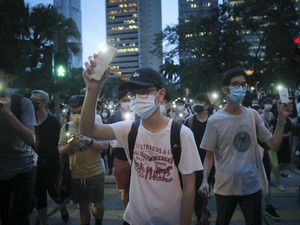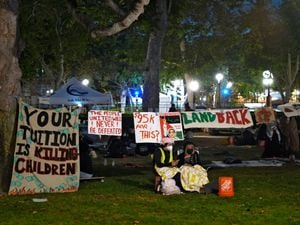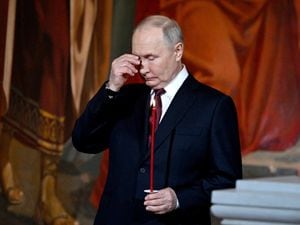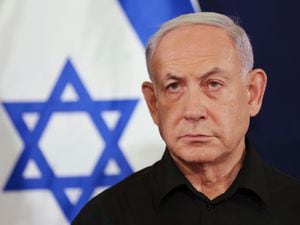Hundreds march in Hong Kong as leader urges stability
It is the one-year anniversary of a huge march through central Hong Kong that grew into a pro-democracy movement.

Hundreds of people have marched in Hong Kong’s streets to mark a year since the start of anti-government protests.
The protesters marched despite police warnings that force could be used to disperse participants and that they faced up to five years in prison. Riot police later charged at a group of demonstrators, deploying pepper spray and tackling some to the ground.
Hong Kong’s leader Carrie Lam marked the occasion by calling for peace and stability.

At least 25 people were arrested for participating in unauthorised assemblies, disorderly conduct and other offences, police said. Some protesters were also stopped and searched by police.
“Lawful protests are always respected but unlawful acts are to be rejected. Please stop breaking the law,” police said in a tweet.
Tuesday is the one-year anniversary of a huge march through central Hong Kong that grew into a pro-democracy movement that saw protesters break into the legislative building and take to the streets every weekend for months.
“The mass protest on 9 June last year has been etched in the collective memory of Hongkongers,” the Civil Human Rights Front, which organised the event, wrote in a Facebook post. “It also marks the beginning of our togetherness in defending our beloved city.”
Protesters also gathered in shopping centres to mark the anniversary at lunchtime, holding up signs and banners reading “Liberate Hong Kong” and singing protest songs. Police closed some streets and walkways ahead of possible protests.

The June 9, 2019, march was in opposition to a proposed extradition bill that would have allowed people in the former British colony, which has its own legal system, to be sent to mainland China to face trial. Organisers said turnout exceeded a million people, while police estimated the crowd at 240,000.
In the ensuing months of protests, violent clashes broke out at times between protesters and the police, leading to accusations of police brutality and sparking protester demands for an independent inquiry into police behaviour.
There was a lull in protests during the coronavirus outbreak early this year, but as the number of infections has dropped, protesters have returned to the streets to demonstrate against an imminent national security law for Hong Kong as well as a recently approved law that makes it illegal to insult the Chinese national anthem.
Critics and protesters say the national security law is a blow to the “one country, two systems” framework following the handover of Hong Kong from Britain to China in 1997, which promised the city freedoms not found on the mainland.
The semi-autonomous Chinese city’s chief executive Ms Lam told reporters: “Everyone has to learn their lesson, including the Hong Kong government. Hong Kong cannot bear that kind of chaos, and the people of Hong Kong want a stable and peaceful environment to be able to live and work here happily.”
Ms Lam did not elaborate on what lessons should be learned.





